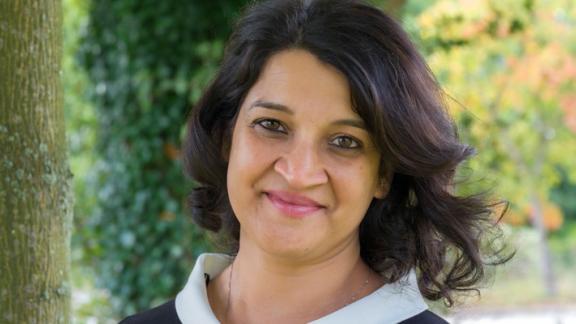What if? Setting the agenda for change for our children and young people

Building a new joint model of care will be vital to change the life outcomes for children and make health inequalities a thing of the past, writes Barnardo’s director of health.
Too often vulnerable families can’t access health services when they need them because of long waiting lists and gaps in the right type of support, with long-lasting implications for their lives.
Infant mortality rates are 2.3 times higher for those living in the most deprived areas,1 with deaths strongly correlated with maternal health during pregnancy and the perinatal period.2 And at age 11, children from the lowest income families are more than 4.5 times more likely to experience severe mental health problems than those from the highest income families.3 And their life expectancy is up to 20 years less than the general population.4
What if we could reverse these statistics and future proof the health of all children over the next five years?
Rethink and redesign
For healthcare to truly improve the overall outcomes of children and young people, health issues must be addressed holistically alongside factors like safety, wellbeing and access to education, training and skills. We need to collaborate; truly work together across health systems to rethink and redesign how services are delivered.
Learning from the pandemic and what we already know, we now have a golden opportunity to transform the system of health and social care. By doing this we will radically improve outcomes for our children, young people, parents and carers.
Our mission at Barnardo’s is for more children, young people and families to be guaranteed a basic state of health and wellbeing.
As the leading children’s charity in the UK, we have more than 800 services, which help more than 358,000 children, young people, parents and carers. We support system-wide approaches, have ‘wrap around’ services that span organisational boundaries, and coproduce solutions with partners, children and families. Working in this way enables us to provide the most effective support to each child or family and tackle health inequalities.
Intentions for transformation and development
Our health strategy has been co-designed and driven by data, theory of change and what we know works through our existing services, to deliver health and wellbeing services for real people with real lives.
It outlines clear intentions for transformation and development of two key areas over the next three years:
- Integrated child and family health
- Community mental health early intervention and prevention services.
We are demonstrating system-wide collaboration in places like Essex, where we are delivering in partnership with Virgin Care to support 131,800 children, young people, parents and carers through our Child and Family Wellbeing Service. This includes health visiting, parenting support, school nursing, family health, support for ages 5-19 and support for young people with SEND up to the age of 25, as well as perinatal mental health support.
And we work alongside GP practice teams in Eden, Keswick and Solway and Longtown and Brampton Primary Care Networks, with Barnardo’s LINK Service. This provides a personalised social prescribing service to children and young people aged 5 to 19 in Cumbria to support with their emotional health and wellbeing.
Since 2015, our Solar service, delivered in partnership with Birmingham and Solihull Mental Health NHS Foundation Trust and Autism West Midlands, has provided integrated emotional wellbeing and mental health services to children and young people aged 0-19 in Solihull. This service prioritises resilience, partnership and coproduction to deliver a service without thresholds, replacing the traditional CAMHS service model to ensure timely access to appropriate support.
And recently Barnardo's was highly commended alongside NHS North Central London CCG (Islington) and London Borough of Islington, Whittington Health, Kooth plc and Isledon and Brandon Centre - Here for Young People for the Integrated Care Partnership of the Year Health Service Journal 2020 Award. The service focuses on Integration of Social, Emotional and Mental Health Services (SEMH) for Children and Young People in Islington.
Relationships built on trust
Continuing our transformative work will involve expanding the type of services we deliver, especially those that work across health and social care where we know children often fall through the gaps. Building deep relationships of trust with partners so we can keep trying different ways of working and innovating is key.
As health and social care leaders, it is through being prepared to take these risks in integrated care systems, really listening to children about what works for them and investing upstream so that we don’t have to build bridges downstream, that we, as a collaborative, can build a new joint model of care. This will be vital if will are truly going to change the life outcomes for children and make health inequalities a thing of the past.
Rukshana Kapasi is director of health at Barnardo’s. Follow her and Barnardo's on Twitter: @rukshanakapasi @barnardos
1 Public Health England (2019). Health Matters: Prevention – a life course approach.
2 Office for National Statistics (2020). Avoidable mortality in the UK: 2018.
3 Association of Young People’s Health (2019). Key data on children and young people in 2019. Chapter 9: Inequalities in health outcomes.
4 Public Health England (2018). Health matters: Reducing health inequalities in mental illness.



